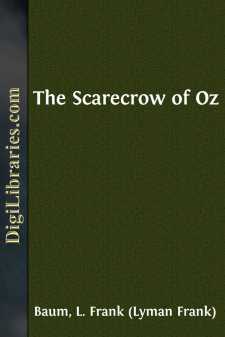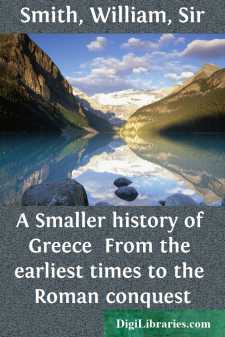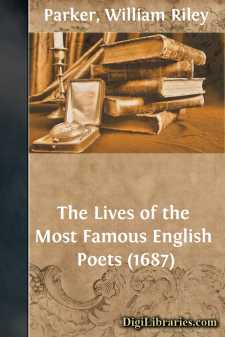Categories
- Antiques & Collectibles 13
- Architecture 36
- Art 48
- Bibles 22
- Biography & Autobiography 813
- Body, Mind & Spirit 142
- Business & Economics 28
- Children's Books 13
- Children's Fiction 10
- Computers 4
- Cooking 94
- Crafts & Hobbies 4
- Drama 346
- Education 46
- Family & Relationships 57
- Fiction 11828
- Games 19
- Gardening 17
- Health & Fitness 34
- History 1377
- House & Home 1
- Humor 147
- Juvenile Fiction 1873
- Juvenile Nonfiction 202
- Language Arts & Disciplines 88
- Law 16
- Literary Collections 686
- Literary Criticism 179
- Mathematics 13
- Medical 41
- Music 40
- Nature 179
- Non-Classifiable 1768
- Performing Arts 7
- Periodicals 1453
- Philosophy 64
- Photography 2
- Poetry 896
- Political Science 203
- Psychology 42
- Reference 154
- Religion 513
- Science 126
- Self-Help 84
- Social Science 81
- Sports & Recreation 34
- Study Aids 3
- Technology & Engineering 59
- Transportation 23
- Travel 463
- True Crime 29
Sort by:
CHAPTER I Tom Swift, who had been slowly looking through the pages of a magazine, in the contents of which he seemed to be deeply interested, turned the final folio, ruffled the sheets back again to look at a certain map and drawing, and then, slapping the book down on a table before him, with a noise not unlike that of a shot, exclaimed: "Well, that is certainly one wonderful story!"...
more...
CHAPTER I. OF PROGRESS AND THE SMALLWAYS FAMILY1"This here Progress," said Mr. Tom Smallways, "it keeps on." "You'd hardly think it could keep on," said Mr. Tom Smallways. It was along before the War in the Air began that Mr. Smallways made this remark. He was sitting on the fence at the end of his garden and surveying the great Bun Hill gas-works with an eye that neither...
more...
by:
Alex Ebel
How could a man tell the difference if all the reality of Earth turned out to be a cosmic hoax? Suppose it turned out that this was just a stage set for students of history? When the sharp snap of a pistol shot came from the half-finished building, Karnes wasn't anywhere near the sandpile that received the slug. He was fifteen feet away, behind the much more reliable protection of a neat stack of...
more...
A slab of shale obtained in 1955 by Mr. Russell R. Camp from a Pennsylvanian lagoon-deposit in Anderson County, Kansas, has yielded in the laboratory a skeleton of the small amphibian Hesperoherpeton garnettense Peabody (1958). This skeleton provides new and surprising information not available from the holotype, No. 9976 K. U., which consisted only of a scapulocoracoid, neural arch, and rib fragment....
more...
by:
Kris Neville
OUTSIDE, the bluish sun slanted low across the green dust of the Martian desert, its last rays sparkling on the far mountain tops. One by one, lights flickered on in the city."Mary must be expecting that Earthman," Anne said. She held her glastic blouse tight together over her breasts and leaned a little out of the window. Milly nodded. "The Azmuth landed this morning." The noises of...
more...
Chapter One "Seems to me," said Cap'n Bill, as he sat beside Trot under the big acacia tree, looking out over the blue ocean, "seems to me, Trot, as how the more we know, the more we find we don't know." "I can't quite make that out, Cap'n Bill," answered the little girl in a serious voice, after a moment's thought, during which her eyes followed those...
more...
ENLISTMENT—INSTRUCTION—DETENTION ON THE RIO GRANDE—MARCH TO VICTORIA AND TAMPICO—LANDING AT VERA CRUZ—DEATH OF CAPTAIN SWIFT. Previous to the war with Mexico there existed among the people of the United States a strong prejudice against maintaining even a small regular army in time of peace. Active opposition to a permanent, regular military establishment extended to the West Point Academy,...
more...
by:
William Smith
GEOGRAPHY OF GREECE. Greece is the southern portion of a great peninsula of Europe, washed on three sides by the Mediterranean Sea. It is bounded on the north by the Cambunian mountains, which separate it from Macedonia. It extends from the fortieth degree of latitude to the thirty-sixth, its greatest length being not more than 250 English miles, and its greatest breadth only 180. Its surface is...
more...
Introduction This book merits more attention and respect from literary historians than thus far have been accorded it. The case must be stated carefully. The work has obvious faults and limitations, which probably account for its never having been reprinted since its appearance in 1687. Almost forty percent of it is largely or entirely derivative. Its author, William Winstanley (1628?-1698), was...
more...
CHAPTER ONE YESTERDAY AND TO-DAY "Once upon a Time." "Once upon a time,"[1] men and women dwelt in caves and cliffs and fashioned curious implements from the stones of the earth and painted crude pictures upon the walls of their rock dwellings. Archaeologists find such traces in England and along the river valleys of France, among the sands of Egyptian deserts and in India, where armor...
more...











